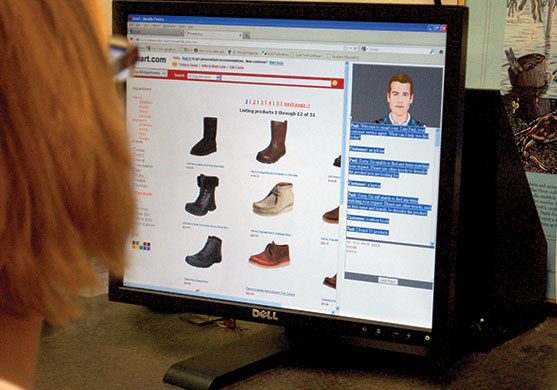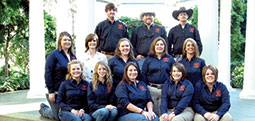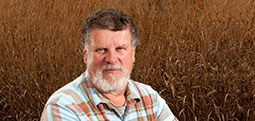| Current Issue | Past Issues | Subscribe | Ag Homepage |

Internet and the Aged
Info Online by
Incorporating talking avatars into websites that offer health and medical information could help senior citizens improve their well-being and enhance their quality of life, AAES consumer scientists at Auburn theorize.
In research focused on elderly and the Internet, Wi-suk Kwon and Veena Chattaraman have found that people in the 65-plus category are more trusting of and less stressed out using e-commerce websites that featured conversational agents—virtual “people” images programmed to interact with users both verbally and nonverbally.
“Our research has generated promising evidence that a conversational agent significantly enhances older adults’ perceptions of social support, trust and hedonic and functional benefits of websites,” Kwon says. “That, in turn, results in less risk perception and user anxiety and leads to increased Internet use.”
If that is so for e-commerce sites, it could also be the case with online sources of valuable health and medical information, Kwon says.
“E-health tools are drastically changing how health care information is communicated and managed, and improving older adults’ abilities to access this information can be very beneficial for them because of the growing number of health issues they tend to face as they age,” Kwon says. “Our goal is to reduce the critical cognitive and social-psychological barriers that hinder older users in Web-based environments.”
To accomplish that, Kwon and Chattaraman are designing conversational agents with interactive cognitive and affective aids to help the elderly access, process, comprehend and more accurately remember complex e-health information.
“This enhanced cognitive and affective information processing could lead to potentially transformative and empowering experiences for older Americans, improving their quality of life through information access,” Kwon says.
The researchers say all of the over-65 subjects who have volunteered to be a part of the research project have been recruited from participants in Auburn University’s Osher Lifelong Learning Institute, the Lee-Russell Council of Governments’ Area Agency on Aging and the Adult Activity Center at the Opelika Sportsplex.
December 2012
Ag Illustrated

At Your Service
Learn Business Skills
by







